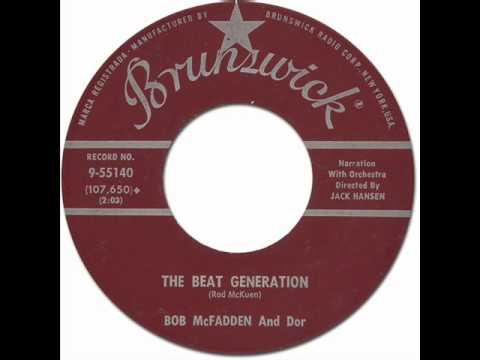“Blank Generation”Generation Process
HOW A PIECE OF MUSIC WAS COVERED- AND THEN THE COVER WAS COVERED— AND THEN THAT COVER WAS BORROWED FROM— AND THEN THAT BORROWED SONG WAS BORROWED FROM— AND THEN IT HAPPENED ANOTHER TIME
Okay, buckle up! This will probably stand as the most absurd Straubinical trail of breadcrumbs I’ll ever post. At least for a while.
And there’s so much scholarship packed into this post that I’m going to feel less guilty than usual about only minimally blathering on the subject. My fellow scholars of esoterica are welcome to add more pearls to this string, but for the mentally stable among you, my list of five singles ought to do it. Or six.
Guitarist Johnny Smith, a guitar virtuoso who had already become obscure even when I first heard of him when I took a lesson around 1980, wrote this tune “Walk, Don’t Run.” Even I hadn’t heard his version until I decided to do this post.
Then Chet Atkins took a little of the jazz out of it, and recorded this bouncy arrangement.
The Ventures heard Chet’s version and simplified the chord changes quite a bit, emphasizing the descending chords on the A part. These are the chords that stick in everybody’s head, especially with the rock and roll beat swapped in.
This 45 was a wiseacre parody of “beatnik” culture. The descending chord progression from WDR pops up in the verses, sometimes intact and sometimes modified.
Bob McFadden took the now-famous two bar chord sequence, added some clever variations to spice it up, attached it to a finger-snapping swing, and wrote a goofy novelty song parodying the by-now somewhat old hat “beat generation.” This parody was a burlesque of a burlesque, the phony Time magazine “crazy, Daddio” version of the hipster culture jumpstarted by Kerouac, Ginsberg, Ferlinghetti et al. The “Walk, Don’t Run” changes were the core of the song, but a new catchy song was inventively built around the original foundation.
Here’s a bonus, a scene from “High School Confidential” with Philippa Fallon’s semi-legendary fake beat poetry. This was five years or so before the novelty 45. Even Mister Ed had made fun of beatniks before this single, but I couldn’t find the clip.
Now, Richard Hell comes along and writes yet another new song (Blank Generation) with those chord changes again used as the foundation for new material built around the original. “It’s such a gamble, when you get a face.” (Check out underrated genius Bob Quine’s crazy guitar breaks.)
Then, a few years later, Brian Setzer comes along and squeezes one more song out of the changes.





Those first 3 clips back to back blew my socks off :)
I really love these posts. So interesting to see the evolution of a specific musical artifact. Thanks for this.